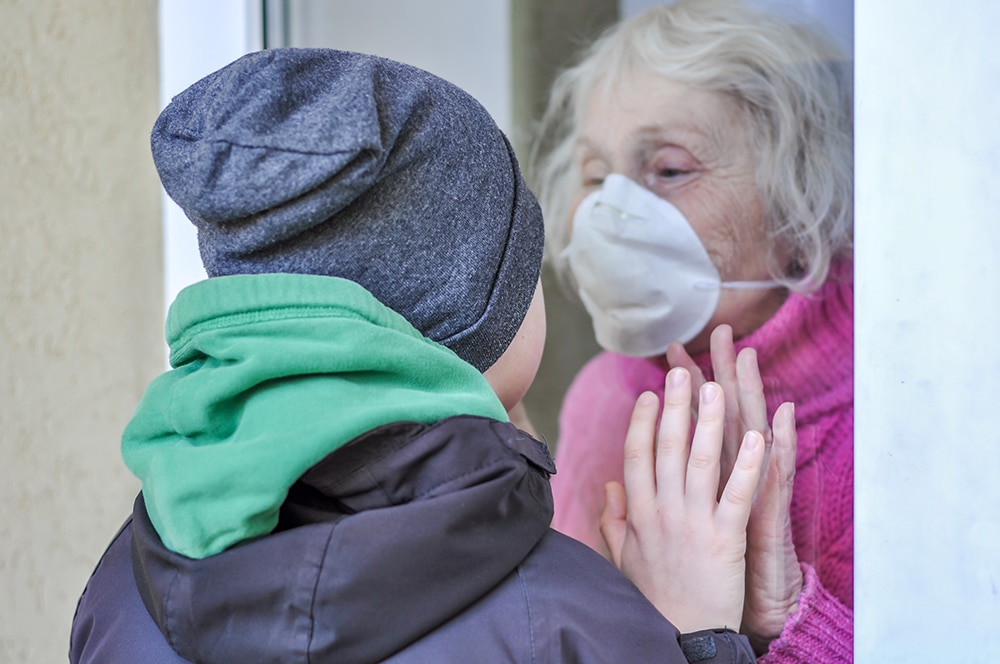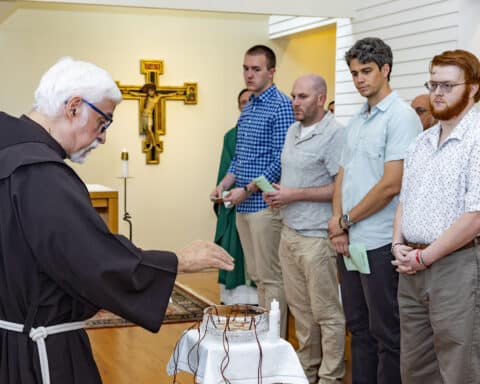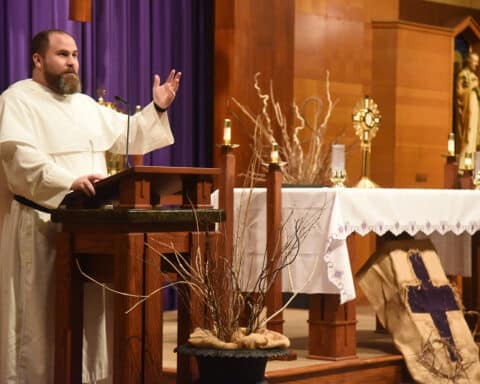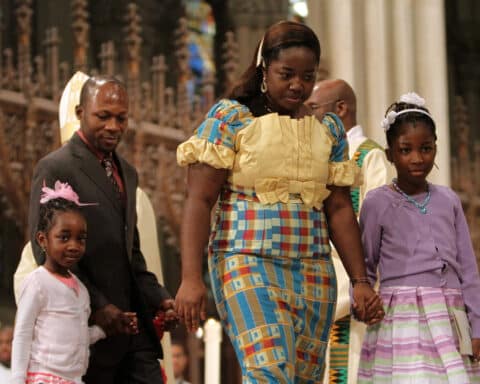
As we’ve been living without Mass and Confession, is there a deepening sense of the union God is calling us to? Will we increase our time spent in front of the Blessed Sacrament? Will we consider adopting a serious culture of fasting and reparation in response? Think of the suffering. Think of the inconsistencies. Think of the darkness.
We know families are suffering as they lose family members and friends to COVID-19 and other conditions, which perhaps could not be treated because of pandemic precautions. We know the isolation that people are enduring — being away from the people they love, the people who make them better, the people who bring them to life. There are endless other sufferings that really are miseries. The absence of loved ones suggests the memory of joy, but many other things point to its antithesis.
My first time in Penn Station in New York since this all started, I was waiting for a train, and a man kept passing by in a T-shirt that advertised a pornography website, the same website that, at the start of the pandemic, announced it would offer free access to their poison. He seemed to be patrolling. At first, I wondered if he was being paid to stand there, but that would make sense only on a “normal” day when the place was overflowing with people passing through. They probably give out T-shirts for free too, because evil always wants recruits.
Wearing it out in the open like he was, I couldn’t help but think, “Well, at least it’s in the light.” The more these things come to light, the more they can begin to be seen. When they come to light, they are exposed and people can be unfurled from the hidden abuse it inflicts on the human body, mind and soul.
Beyond coronavirus, there is so much more that is killing us right now. Examples are the inconsistencies in open abortion clinics while the governor of New York talks about the pricelessness of human life after having expanded abortion and celebrating it with lights on the bridge he named after his father (a Catholic who famously tried to justify his public opinion while claiming to be personally opposed). We haven’t been making sense as a society for a long time. And it only gets worse. The governor of New Jersey recently legalized assisted suicide and now seeks resources to help combat suicide because of the spike in coronavirus despair.
And then there are the nursing homes where coronavirus has wreaked havoc on human life. Is life, indeed, essential and priceless? If so, isn’t it critical we walk with women who feel pressure to have abortions? Don’t our hearts cry out to women who have had abortions, for their healing? If we really do value life, don’t we want to treat our elderly like kings and queens because they were made in the image and likeness of God? If we are increasingly seeing all of our sins and have sorrow for it, don’t we want to make amends? Don’t we want to lovingly pray for all and beg God’s mercy for those drowning in all kinds of misery?
We are being called to a revolution of the essential — to eradicate that which is in opposition to the essential and trim away all that distracts us from the essential. Our commitment to the Eucharist will lead the way. As we approach Pentecost, pray the Holy Spirit will lead the way.
Kathryn Jean Lopez is a senior fellow at the National Review Institute and editor-at-large of National Review.





